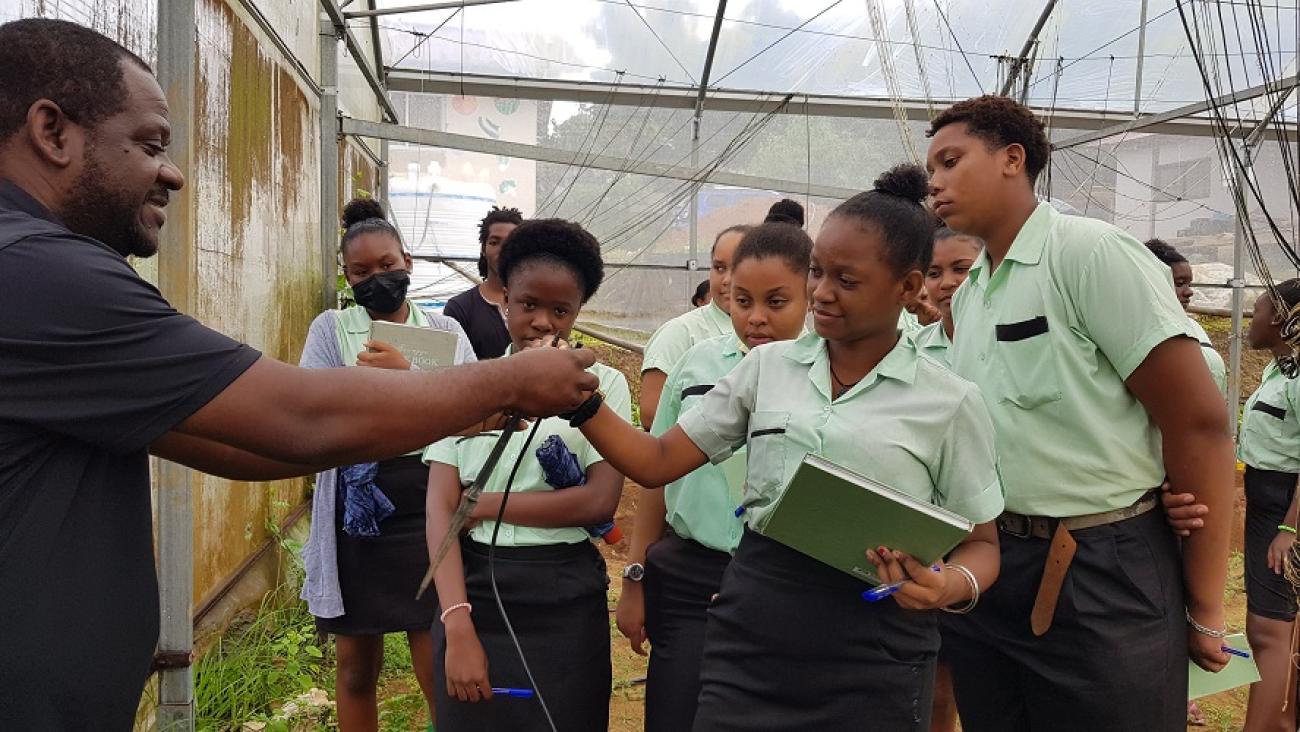The pledge to Leave No One Behind underpins the United Nations work and Sustainable Development Goals (SDGs). This includes our youth who not only directly experience the outcome of the SDGs but will also be the key driver for their successful implementation in the future. The GEF Small Grants Programme (SGP) at the United Nations Development Programme (UNDP) has been prioritizing youth as one of the “leave no one behind” vulnerable groups in the context of its environment and development work.
The SGP has been running a youth and climate change portfolio with four main projects in addition to two prior youth projects addressing climate change concerns. The Wildlife Clubs of Seychelles completed a mangrove restoration and management project while the Futuro Sports Sesel led aspiring footballers to understand the challenges of climate change and how as a sports academia they too can take actions to combat its impact.
Young people occupy a unique position in relation to the climate crisis and their generations will be forced to address the threats and challenges to make radical transformations possible. This Youth and Climate Change project portfolio is supporting innovative youth-led experimental initiatives. Importantly it aims to showcase the results and share lessons to demonstrate practical and specific ways for youth engagement in advancing energy system transformation and concrete measures to address climate change in the country.
More than 200 youths in Seychelles have been developing their awareness, skills and competencies to lead climate action at local, national and global levels. Some examples include: (1) aspiring farmers from the Seychelles Institute of Agriculture collaborating with the Grand Anse Farmers Association to increase farm resilience against water deficit, during the dry season and build their knowledge and capacity about water conservation techniques and other field applications. (2) Younger students in two primary schools supported with a start up nursery and solar irrigation systems to instil in them the love for agricultural practices. (3) The University of Seychelles’ youth-led project using innovative tasks in climate change mitigation and adaptation within the context of sustainable development and environmental protection through livelihood improvement and the creation of green jobs. These include acceptance of photovoltaic systems in the Seychelles, environmental sustainability in the Seychelles’ hospitality sector, and the promotion of agroforestry among 40 farmers through the planting of 600 fruit trees. The Unisey youth project team concluded with a hands-on training of five young people and installation of a 15kw PV system at the campus in collaboration with the Seychelles Energy Department.
Marissa Samedi, 21 years old, informs that she participated in the project by undertaking her research work on PV intake in the community. Part of the findings showed that PV is still inaccessible and unaffordable for most households to adopt the systems in the country:
"The project graced me with many opportunities and a clear guidance to a green career path. Now that I have completed my studies, I am working with a tourism company as the sustainability officer, assisting them in making greener choices for the company.”
The Global Shapers Victoria Hub has been building environmental leadership in young people aged 11 – 20, through an interactive engagement programme run during the school holidays. The aim was to equip the next generation of environmentally conscious young leaders with the skills, knowledge, confidence, and networks to positively tackle local climate action-related causes in their communities. Despite challenges with the COVID19 pandemic, they have managed to train 40 youths in specific leadership skills to ensure that a new generation of competent, ethical, and environmentally conscious servant-leaders across the public, private and civil society sectors are being fostered. The participants met with national leaders operating in the conservation space in Seychelles, learnt first-hand about the climate-related challenges that our country faces, as well as community-led solutions that are taking place on the ground. They were also connected to existing conservation groups and NGOs in Seychelles through experiential activities and developed their own initiatives implemented at community level. This programme is a first for Seychelles aiming to attract more young people towards volunteering opportunities. Young Yoan Aglae exclaims:
“A small country like the Seychelles, why are we contributing to so much trash, why can’t we instead reduce, re-use and recycle!”
Finally, The Guy Morel Institute brought together knowledge of all the projects from this Youth and Climate Change portfolio for wider dissemination at national level, while also promoting a greener platform at the tertiary academic institution. A Youth and Climate Change conference (with a Children’s Conference Component) was organised over four days in October 2022 with participation of over 150 youth. There were presentations from stakeholders engaged in a variety of climate change initiatives, such as an explanation by Ambassador Ronny Jumeau of the UNFCCC COP processes. The objectives of the conference were to promote youth engagement in Seychelles’ Nationally Determined Contributions (NDCs) and empower them to become climate change advocates, while inspiring their leadership in climate action within their community or work environment. In the end a youth-climate position statement was produced on the implementation of the Seychelles NDC and engagement towards building climate adaptation and resilience in the country.
The UN recognizes that youth can be a positive force for development and remains committed to supporting them to access the knowledge and opportunities they need to thrive.







